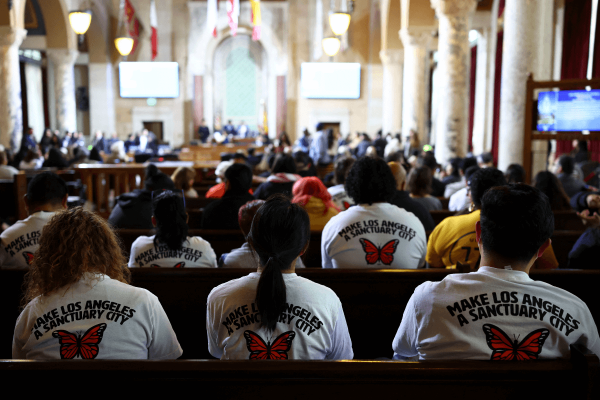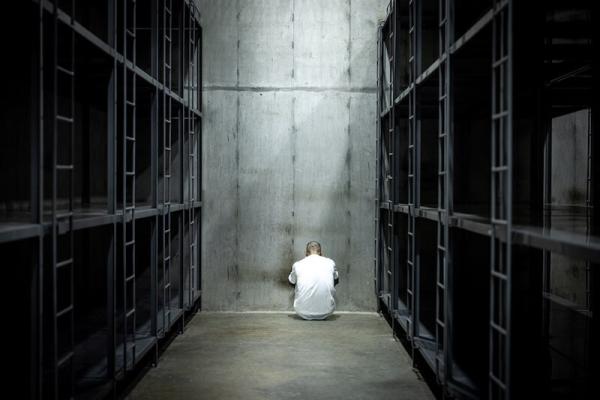Before President Donald Trump’s second inauguration, NBC News reported that the incoming administration was considering targeting “Chinese men who are deemed to be of military age living illegally in the United States” in its mass-deportation efforts. This followed remarks from last April building on decades of racist “Yellow Peril” tropes in which Trump claimed: “They’re coming from China over the last few months … are they trying to build a little army in our country?”
This week, after Trump assumed office, he signed executive orders declaring a national emergency at the U.S.-Mexico border and issuing a broad ban on asylum. Large raids are expected in major cities across the country, including Chicago, Denver, and Minneapolis; and millions fear deportation and separation from loved ones.
In this anxious moment, I find it helpful to remember a similar era from the late 19th century, a time when Chinese migrants, under threat of mass deportation, collectively resisted with one of the greatest instances of civil disobedience in U.S. history. Following the passage of the 1892 Geary Act, which continued barring Chinese laborer migration and required all Chinese residents to register as aliens, about 90,000 Chinese — roughly 9 out of 10 Chinese in the U.S. at the time — defied unjust government orders to protest their racial treatment.
The Chinese termed the act the “Dog Tag” law, because it empowered police to round up, jail, and deport any Chinese individual who hadn’t registered. While the U.S. Constitution and the Burlingame-Seward Treaty had ensured some protections for the rights for Chinese migrants, the 1882 Chinese Exclusion Act and Geary Act that followed suspended these rights for noncitizens and prohibited them from becoming citizens. In response, Chinese challenged the Geary Act both through diplomatic means and in the courts. Alongside two other Chinese migrants, Fong Yue Ting, a Chinese man who had been living in New York for over a decade and planned to be a permanent resident in the U.S., gave himself up for arrest to challenge this law; their case became Fong Yue Ting v. United States.
In support of this case, Chinese also engaged in mass civil disobedience, even at the risk of deportation, by not registering with the U.S. government. Being sent back to China would have been a severe penalty: The migrants had spent family fortunes to travel to the U.S. and the shame of failing to fulfill familial responsibilities would likely have led to even greater impoverishment.
Despite the costs of resisting the law, Chinese Christians, in solidarity with those impacted, also defied authorities. In 1892, Rev. Jee Gam, a Methodist minister, wrote in an essay for an evangelical journal, “If we registered we would be traitors in the eyes of our countrymen…Therefore our brethren have said that they would rather take the chance of being deported than to be charged with disloyalty; rather sustain the cause of Christ than disgrace it.” As he saw it, fighting injustice, standing with the oppressed, and disobeying the government each uplifted “the cause of Christ.”
Such mass civil disobedience — backed by the church and its community — is necessary again today.
Christians who support Trump’s plans for mass deportation argue that Christians should obey authorities. Since those entering this country without legal permission are breaking laws, these Christians reason, the lawbreakers should be punished; instead, those wishing to live in the U.S. should pursue legal avenues for migration, as millions of others have done. In 2018 Jeff Sessions, who was then U.S. attorney general, famously and controversially cited Romans 13 to make this argument to defend family separation policy under the first Trump administration.
Even if seeking asylum were illegal — and it isn’t — scriptures are replete with stories where individuals defied laws when they were out of alignment with God’s overall demand for love, justice, and true worship. Jesus himself broke Sabbath laws to heal after declaring “the Sabbath was made for man, not man for Sabbath” (Mark 2:23-3:6). Similarly, Hebrew midwives continued to deliver babies, contrary to the Pharoah’s command (Exodus 1:15-21). Shadrach, Meshach, and Abednego were thrown into the fire for refusing to bow down to Nebuchadnezzar’s image (Daniel 3).
Tom Homan, who Trump has named as his incoming “border czar,” has already spelled out the administration’s plan for mass deportation of unauthorized individuals, including enlisting the help of the U.S. military; 1,500 troops are already expected to be deployed to the U.S.-Mexico border. The new administration also expects local officials and law enforcement to abet deportation, and made it clear in a memo that they may prosecute those who refuse. And they even approve of arresting undocumented persons in houses of worship, schools, and hospitals, depriving these individuals the freedom of religion, and their rights to education and health.
While these policies claim to be in the interest of upholding U.S. law, I don’t think the policies abide by the spirit of our Constitution or what I think are Christian principles. Asylum seekers are not criminals but people who are fleeing persecution, violence, and poverty. We are called to see people who enter this country without documents not as “illegals” but as Christian brothers and sisters made in the image of God who deserve our welcome and hospitality. God commands in Leviticus, “When a stranger sojourns with you in your land, you shall not do him wrong. You shall treat the stranger who sojourns with you as the native among you, and you shall love him as yourself, for you were strangers in the land of Egypt.” The spirit of this law is clearly love and empathy, not xenophobia and scapegoating.
Communities of immigrants across the nation are justifiably fearful of growing violence against their families. Wives may be separated from husbands, children may again be imprisoned, and churches might be raided. In the 19th century, we saw how government immigration policies emboldened mob violence, including 20,000 Chinese — my own great-grandparents among them — who were displaced by rioters following the 1882 Chinese Exclusion Act.
Let us now be the church that faithfully obeys Jesus’ radical law of love and prepare to act in civil disobedience to protect and care for our neighbors. Father John Dear, author of The Sacrament of Civil Disobedience, observes that nonviolent civil disobedience is “an experience of the sacred.” Civil disobedience is not to be taken simply as a political position against injustice, he writes, but requires “a discerning attitude and prayerful reflection.” He provides 10 questions to help discern when to engage in civil disobedience, including whether obedience to God’s will is one’s primary motivation, what actions scriptures invite in a situation, and whether one is acting out of anger, self-righteousness, or a judgmental spirit. Dear recommends that any engagement in civil disobedience should be practiced with a community in covenant with one another, including “a life of regular prayer, communal worship, and spiritual direction.”
“Ultimately,” Dear summarizes, “an act of nonviolent civil disobedience is an act of divine obedience; that is, it is a response to the movement of God’s spirit in our world.”
Likewise, Rev. Wang Yi, the founding pastor of a house church in China who was arrested in 2018, declares his Christian preaching against the Communist persecution of the church to be one not of civil disobedience, but of faithful disobedience. Now in his sixth year in prison following a government raid of the Early Rain Covenant Church in Chengdu, he writes: “The calling that I have received requires me to use non-violent methods to disobey those human laws that disobey the Bible and God. My Savior Christ also requires me to joyfully bear all costs for disobeying wicked laws.”
Just as Rev. Jee Gam and the 19th century Chinese community united in solidarity for what they thought was righteous, we too need to act in faith, courage, and love for our neighbors. Our nonviolent resistance can then “sustain the cause of Christ” and be a hopeful sign of God’s grace and truth in this dark moment.
Got something to say about what you're reading? We value your feedback!







